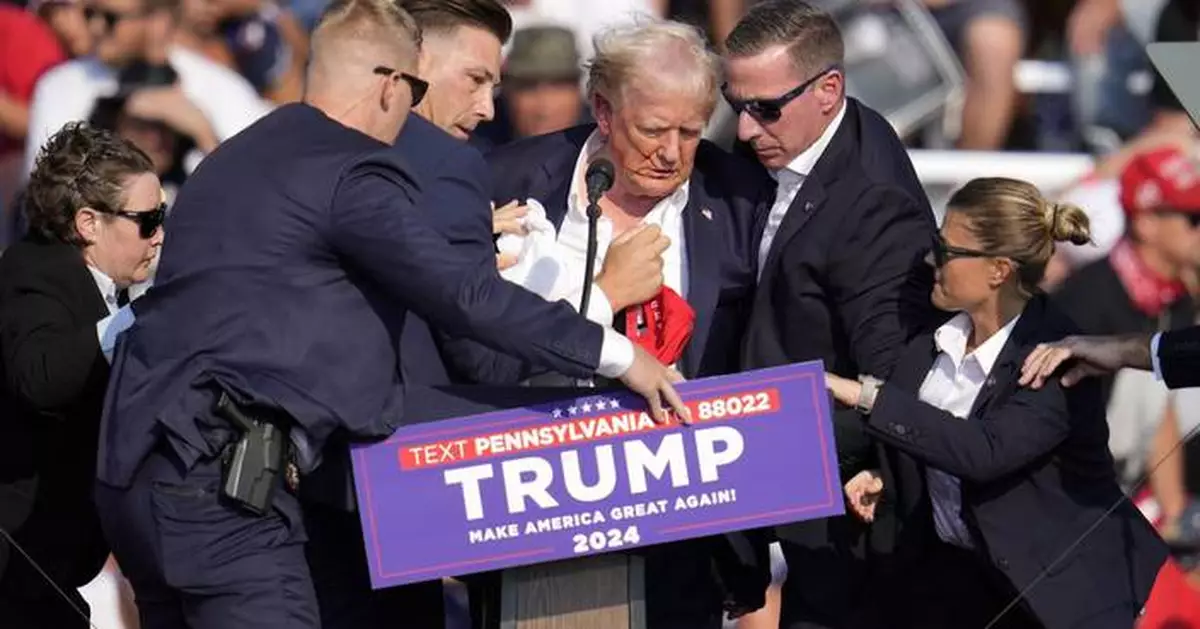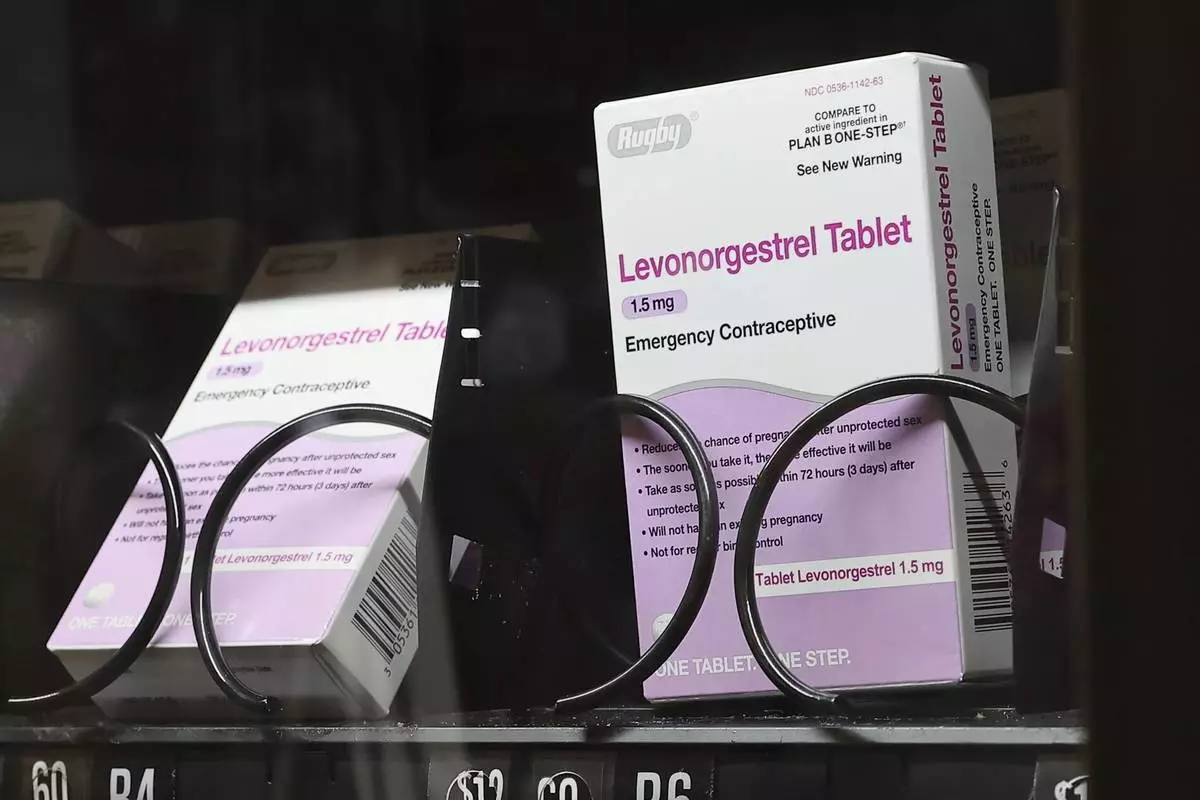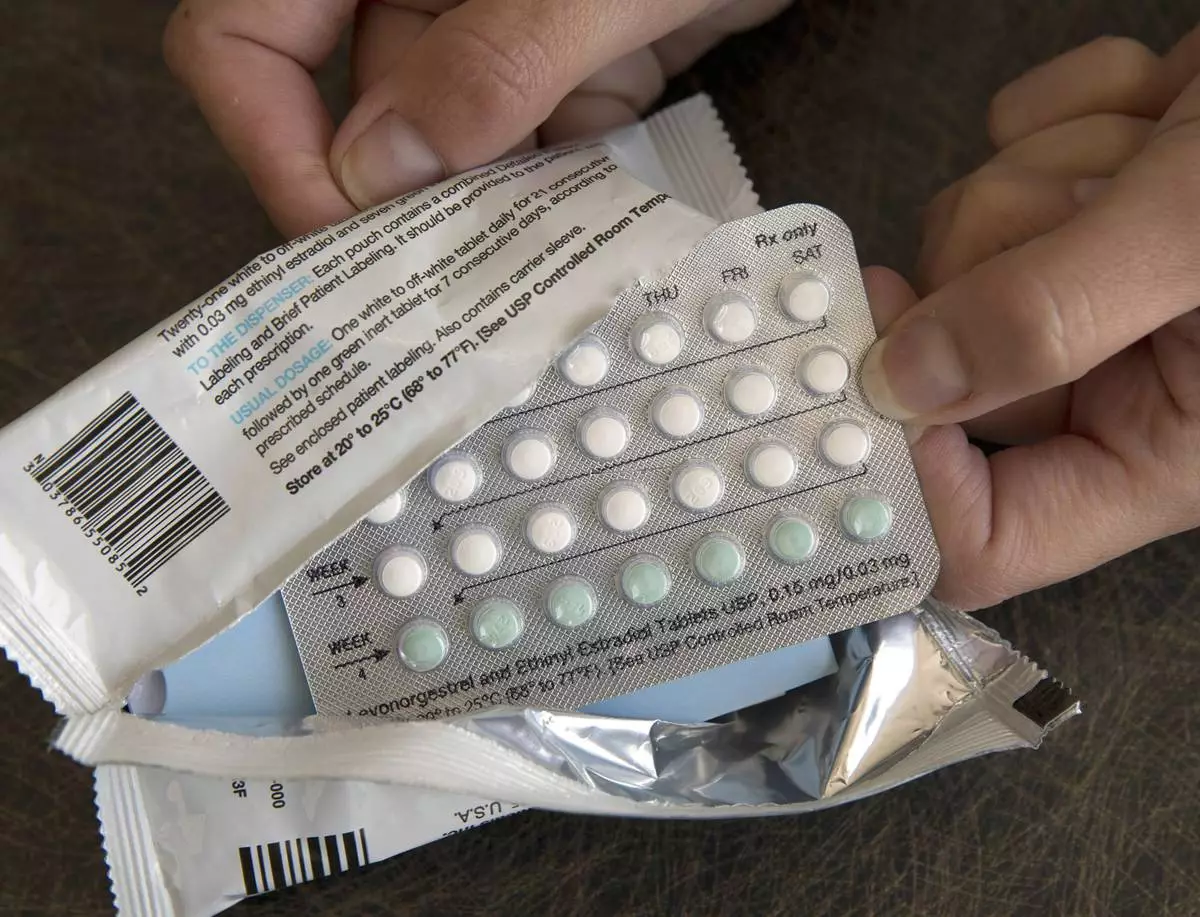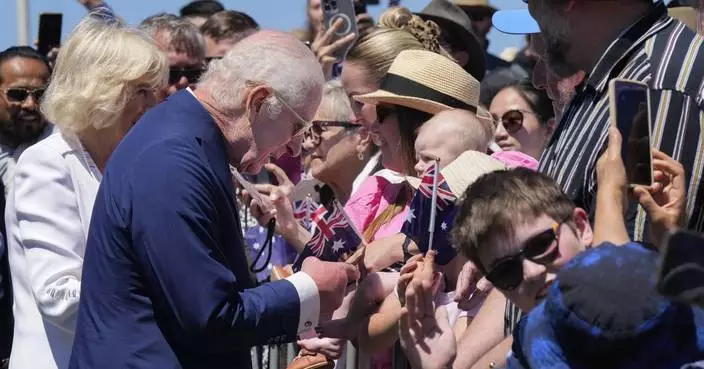WASHINGTON (AP) — The assassination attempt against former President Donald Trump at a Pennsylvania rally in July was “preventable and should not have happened,” according to a bipartisan House panel that is investigating the shooting and what it calls the “stunning security failures” at the event.
The report from a House task force, released Monday, is just the latest look at the cascading and wide-ranging law enforcement failings that preceded the July 13 shooting at the Butler, Pennsylvania, rally where Trump was struck in the ear by gunfire. One rallygoer was killed in the shooting and two others were wounded.
Members of both the House and Senate have repeatedly questioned why the Secret Service, an agency tasked with protecting the country’s top leaders, didn’t do a better job communicating with local authorities during the campaign rally, particularly when it came to securing the building that was widely agreed to be a security threat but that ultimately was left so unprotected that gunman Thomas Matthew Crooks was able to climb up and shoot.
Lawmakers in their report focus on "the fragmented lines of communication and unclear chains of command" between Secret Service and Pennsylvania state and local police but place the majority of the blame on the Secret Service for the security breakdown.
“Federal, state, and local law enforcement officers could have engaged Thomas Matthew Crooks at several pivotal moments,” the report stated. Lawmakers added that throughout the afternoon, “as Crooks’s behavior became increasingly suspicious, fragmented lines of communication allowed Crooks to evade law enforcement” and climb onto the unsecured roof where he would eventually open fire.
“Put simply, the evidence obtained by the Task Force to date shows the tragic and shocking events of July 13 were preventable and should not have happened,” the report continued.
The preliminary findings are drawn from thousands of pages of documents, nearly two dozen transcribed interviews with state and local officials as well as a series of both classified and non-classified briefings from senior officials at the Secret Service and the FBI.
The report breaks little new ground, as the failed Secret Service response has been already documented by an independent commission, an interim Senate report as well as congressional testimony and news media investigations. The House report, like others before it, does not identify specific individuals who may be to blame.
But The Associated Press has previously reported that at least five Secret Service agents have been placed on modified duty. The director of the Secret Service at the time, Kimberly Cheatle, resigned shortly after the shooting, saying she took full responsibility for the lapse.
The task force — comprised of seven Republicans and six Democrats — showcased some of the report's findings during a public hearing last month. Lawmakers say they plan to issue a final report, including recommendations to avoid future assassination attempts against political candidates, by mid-December.
The task force has also begun investigating the second assassination attempt on Trump last month where a man with a rifle camped outside one of his golf courses in southern Florida.
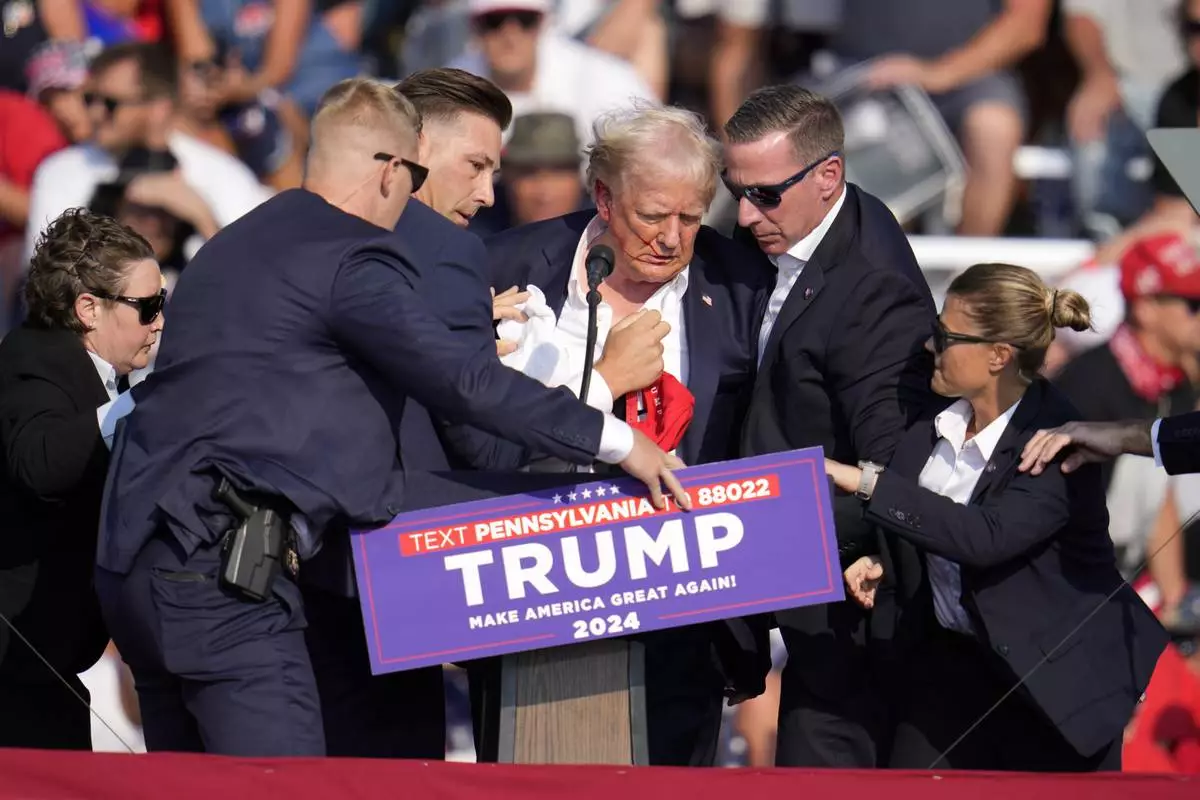
FILE - Republican presidential candidate former President Donald Trump is helped off the stage at a campaign event in Butler, Pa., July 13, 2024. (AP Photo/Gene J. Puskar, File)


